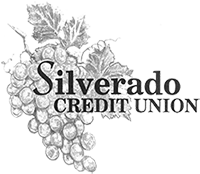The Credit Union System
The only financial service network dedicated to member service instead of profit.
Credit Unions began as an idealistic, yet practical, experiment. The concept was simple: Members pool their savings and lend to each other. Credit union founders had a motto, still used today, describing why credit unions were started in the first place: “Not for profit, not for charity, but for service.” From the beginning, credit unions sought to keep people economically independent – by helping them learn to save and borrow prudently.
Our field of membership is determined by where you live, work, go to school or where you worship. Only eligible individuals may belong to the credit union and vote at meetings.
Another feature of credit unions is their volunteer leadership. The credit union board members (directors) are qualified, unpaid volunteers the members elect. They work for the membership’s best interest, not for the interest of a few stockholders.
Credit Unions are unique, they are different and separate from profit making financial institutions (banks and savings & loans). Credit unions are owned and democratically controlled by their members. The members elect the directors who set policy. The surplus from operations belongs to the membership and is used to benefit them, not a group of stockholders. “Not for profit, not for charity, but for SERVICE.”
As times change, so do credit unions. When new member needs arise, credit unions find ways to satisfy those needs. Credit unions remember their mission and are always looking for ways to benefit our members.
The Credit Union Difference!
Credit Unions are financial cooperatives. They are organized for the purpose of providing financial services to a certain group of people – the members.
Purpose…Credit Unions exist not for charity, not for profit, but for service.
Others – to make a profit.
Definition…Credit Unions are financial cooperatives owned and controlled by their members.
Others – financial institutions that are owned by groups of shareholders who may or may not have accounts there.
Governance…Credit Unions are democratically structured, every member has an equal say about a credit union’s goals, functions, and services.
Others – Depositors are not guaranteed a vote. In a bank or savings and loan, only shareholders may vote on goals, functions, and services. In mutual banks, votes are weighted according to amount of deposits.
Directors…Credit Union members elect the directors who volunteer their time.
Others – Board members are elected by their shareholders and are paid.
Earnings…Credit Union earnings are returned to members in the form of higher savings rates, lower loan rates, no or lower fees, and improved services.
Others – Earnings are returned to shareholders.
Capital…Credit Unions can build capital only through their earnings.
Others – Capital is obtained through investments by shareholders.


